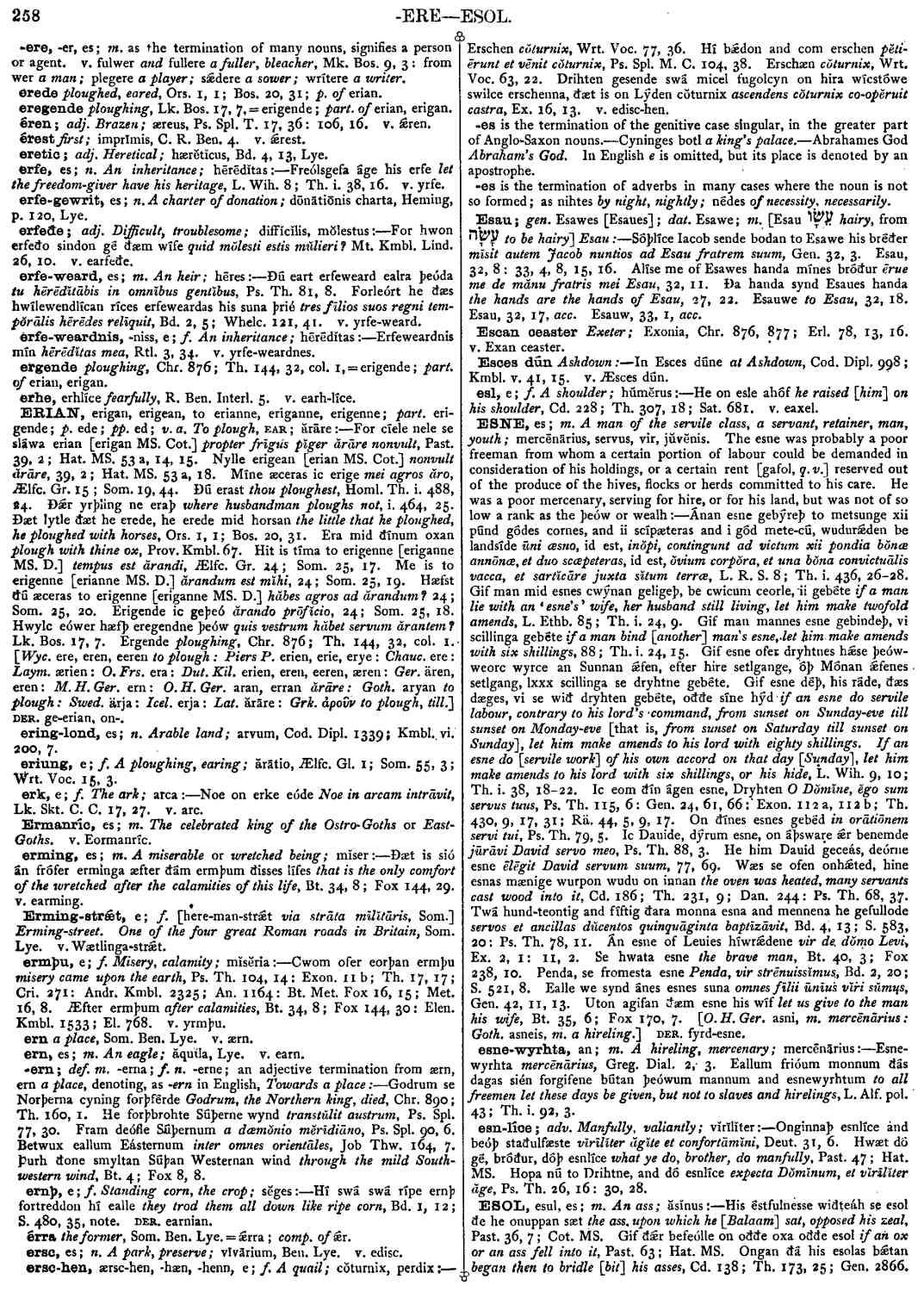ERIAN
- verb [ weak ]
-
For cíele nele se sláwa erian [erigan MS. Cot.]
propter frīgus pĭger ărāre nonvult,
- Past. 39, 2;
- Hat. MS. 53a, 14, 15.
-
Nylle erigean [erian MS. Cot.]
nonvult ărāre,
- 39, 2;
- Hat. MS. 53a, 18.
-
Míne æceras ic erige
mei agros ăro,
- Ælfc. Gr. 15 ;
- Som. 19, 44.
-
Ðú erast
thou ploughest,
- Homl. Th. i. 488, 84.
-
Ðǽr yrþling ne eraþ
where husbandman ploughs not,
i.- 464, 25.
-
Ðæt lytle ðæt he erede, he erede mid horsan
the little that he ploughed, he ploughed with horses.
- Ors. 1, 1;
- Bos. 20, 31.
-
Era mid ðínum oxan
plough with thine ox.
- Prov. Kmbl. 67 .
-
Hit is tíma to erigenne [eriganne MS. D.]
tempus est ărandi,
- Ælfc. Gr. 24 ;
- Som. 25, 17.
-
Me is to erigenne [erianne MS. D.]
ărandum esi mĭhi,
- 24 ;
- Som. 25, 19.
-
Hæfst ðú æceras to erigenne [eriganne MS. D.]
hăbes agros ad ărandum?
- 24 ;
- Som. 25, 20.
-
Erigende ic geþeó
ărando prōfĭcio,
- 24 ;
- Som. 25, 18.
-
Hwylc eówer hæfþ eregendne þeów
quis vestrum hăbet servum ărantem?
- Lk. Bos. 17, 7.
-
Ergende
ploughing,
- Chr. 876 ;
- Th. 144, 32, col. 1 .
Bosworth, Joseph. “ERIAN.” In An Anglo-Saxon Dictionary Online, edited by Thomas Northcote Toller, Christ Sean, and Ondřej Tichy. Prague: Faculty of Arts, Charles University, 2014. https://bosworthtoller.com/9701.
Checked: 1